Secretary of State Dianna Duran has dropped an effort to force Democratic gubernatorial candidate Gary King to return $10,900 in campaign contributions. Initially, Duran claimed the contributions violated campaign finance limits because donors were attempting to give for both the […]
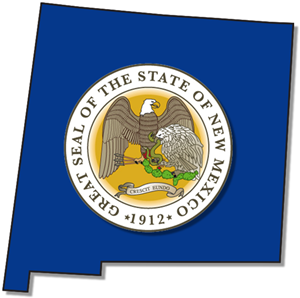 Secretary of State Dianna Duran has dropped an effort to force Democratic gubernatorial candidate Gary King to return $10,900 in campaign contributions. Initially, Duran claimed the contributions violated campaign finance limits because donors were attempting to give for both the primary and general election after the date of the primary election.
Secretary of State Dianna Duran has dropped an effort to force Democratic gubernatorial candidate Gary King to return $10,900 in campaign contributions. Initially, Duran claimed the contributions violated campaign finance limits because donors were attempting to give for both the primary and general election after the date of the primary election.
In a letter to King, Duran updated her position by stating the questionable contributions were permissible as long as King shows the post-primary contributions were used to retire debt from the primary election. Duran also expects King to provide statements from the contributors indicating part of their contributions were intended to help with the candidate’s primary debt.
The decision will likely make moot a legal action King filed against Duran set for hearing by the state Supreme Court.
August 15, 2014 •
News You Can Use Digest – August 15, 2014
Federal: GOP Looks to Shake Loose More Wall Street Cash Politico – Patrick Temple-West | Published: 8/13/2014 The Securities and Exchange Commission rule limiting some campaign contributions from investment firms violates free speech, two state Republican parties said in a lawsuit […]

Federal:
GOP Looks to Shake Loose More Wall Street Cash
Politico – Patrick Temple-West | Published: 8/13/2014
The Securities and Exchange Commission rule limiting some campaign contributions from investment firms violates free speech, two state Republican parties said in a lawsuit seeking to overturn the regulation. The rule bars an investment firm from managing a state’s assets for two years if the company, or certain of its executives, make more than a nominal donation to a state official with power over state contracts with investment advisors. The regulation forces investment advisers to make “an impermissible choice [between] exercising a First Amendment right and retaining the ability to engage in professional activities,” wrote the New York and Tennessee Republican parties.
Media Matters’ David Brock Expands Empire
Politico – Kenneth Vogel | Published: 8/14/2014
Democratic operative David Brock is now the chairperson of Citizens for Responsibility and Ethics in Washington (CREW). Brock’s arrival is part of a broader shakeup at CREW, with Melanie Sloan, the executive director and longtime leader of the organization, announcing she will step down. Brock confirmed the basics of the shakeup in an interview. The reconfigured CREW will add a more politically oriented arm, expand its focus into state politics and donor targeting, and will operate in close coordination with Brock’s fleet of nonprofits and super PACs: Media Matters, American Bridge, and the American Independent Institute.
White House Eases Lobbyist Ban
The Hill – Megan Wilson | Published: 8/12/2014
The Obama administration rolled back part of its ban on lobbyists serving in government. Under a new rule, registered lobbyists whom Obama had previously barred from serving on government advisory boards may now participate if they are representing companies or groups and not acting on their own behalf. The change was published in the Federal Register and took effect immediately. It comes after an appeals court rejected the administration’s efforts to dismiss a lawsuit by six lobbyists who challenged the ban’s constitutionality after being excluded from a trade advisory committee. The lobbyists said their First Amendment rights to petition the government had been violated.
From the States and Municipalities:
Arizona – How Public Financing Changed Politics in Arizona
Vox.com – Andrew Prokop | Published: 8/13/2014
Arizona voters in 1988 approved the public financing of campaigns. Under the Clean Elections Act, candidates for office are given public funds as long as they do not raise other money and abide by spending limits. Though reformers hoped this would help get money out of politics, some have argued clean elections model could actually lead to increased polarization and dysfunction. Michael Miller, a political science professor and author of the book Subsidizing Democracy, surveyed over 1,000 candidates for office in states with public financing systems about their experience. In an interview, Miller discusses Arizona’s law and his research.
Florida – Businessman Settles Ethics Complaint in Connection with Miami Beach Convention Center
Miami Herald – Joey Flechas | Published: 8/13/2014
The Miami-Dade Commission on Ethics and Public Trust said businessperson John Portman settled an ethics charge against him by agreeing to pay $2,000. Portman met with several Miami Beach commissioners from January 2013 to July 2013 to talk about a project to redo the Miami Beach Convention Center, but did not register as a lobbyist until July. He was part of a group of architects and developers, Portman CMC, who were in the race for the convention center deal. Portman’s attorney told the ethics panel that Portman did not intentionally violate the city’s lobbyist-registration law because, as the company’s owner and principal, he did not know he had to register.
Florida – Florida Legislators Approve New Redistricting Map but New Challenge Is Expected
Miami Herald – Mary Ellen Klas and Michael Van Sickler | Published: 8/11/2014
The Florida Legislature approved a new congressional map that slightly modifies seven districts in an effort by the Republican-controlled body to comply with a judge’s order to redraw the lines without taking into account partisan advantage. A hearing on the map and its potential impact on the 2014 election is set for August 20, less than a week before the scheduled primary elections. Democratic-aligned groups, who took the map to court, are expected to argue the new boundaries do not make any significant changes and the lines were once again drawn behind closed doors.
Georgia – State Ethics Commission Hires 2 New Staff Lawyers
The Daily Report – Kathleen Baydala Joyner | Published: 8/12/2014
Robert Lane and Bethany Whetzel joined the Georgia Government Transparency and Campaign Finance Commission as staff attorneys. The two are tasked with analyzing complaints against elected officials. The pair join the agency in the wake of the commission settling several whistleblower lawsuits brought by former employees who claimed they were fired for investigating Gov. Nathan Deal.
Illinois – Former Red Light Camera CEO Indicted, Federal Probe Expands
Chicago Tribune – David Kidwell | Published: 8/13/2014
Former Redflex Traffic Systems Chief Executive Officer Karen Finley was indicted on corruption charges in a federal investigation of one of the nation’s largest red-light camera programs. Finley is accused of funneling nearly $600,000 in cash and other benefits to a now-retired Chicago official, John Bills, for his help in landing the firm $124 million in city contracts. Bills was charged in May with one count of bribery. In the new indictment, he faces additional charges, including extortion and filing false income tax returns. Also named the indictment is Martin O’Malley, a former Redflex company liaison. He faces a bribery charge for allegedly passing much of his $2 million Redflex compensation to Bills.
Maine – Federal Judge Hears Arguments on Maine Campaign Finance Donation Limits for Independents
Lewiston Sun Journal – Scott Thisle | Published: 8/12/2014
A federal judge heard arguments in a case challenging a Maine law that allows major-party candidates to accept $1,500 contributions from individuals for both the June primary and the general election, but does not restrict when that money must be spent. Independent gubernatorial candidate Eliot Cutler can collect a maximum of only $1,500, which his supporters claim in the lawsuit is unconstitutional. Jamie Kilbreth, the attorney representing Cutler’s supporters, said Maine’s law was clearly unfair. He also said it was in conflict with several U.S. Supreme Court and Circuit Court decisions in other states, including one from Colorado earlier this year.
North Carolina – McCrory Misstated Duke Energy Holdings, Sold Stock after Coal-Ash Spill
Raleigh News & Observer – J. Andrew Curless and Craig Jarvis | Published: 8/13/2014
North Carolina Gov. Pat McCrory filed a new ethics and economic disclosure that now makes clear he owned at least $10,000 of Duke Energy stock on the last day of 2013, reversing disclosure filings he made in April and May. The governor sold the stock after the Duke Energy plant in Eden spilled 39,000 tons of coal ash, into the Dan River. The crisis generated national news, put a spotlight on McCrory’s ties to Duke, where he worked for about 29 years, and prompted the governor and legislators to propose laws about cleaning up coal ash that Duke Energy says could cost the company as much as $10 billion over the next 30 years. A major reform bill has not passed the General Assembly.
Pennsylvania – Pa. Limits on PAC Donations Voided Due To Citizens United
Law360.com – Kelly Knaub | Published: 8/14/2014
U.S. District Court Judge William Caldwell struck down a Pennsylvania law that banned corporations and labor groups from donating more than $250 to expenditure-only political committees. Caldwell granted General Majority PAC’s bid to convert a preliminary injunction issued in March into a permanent one, agreeing with the group that the state law violated the First Amendment in the wake of the U.S. Supreme Court’s Citizen United decision.
Rhode Island – Fung Filmed Campaign Ad in Ohio
WJAR – Parker Gavigan | Published: 8/13/2014
A television ad for Rhode Island gubernatorial candidate Allan Fung says his state is “open for business” and showcases Fung in a diner. But the diner is in Ohio. The restaurant has been the setting for political commercials in the past, but the candidates are usually campaigning for office in Ohio or for president, said Michael Pappas of Tommy’s Diner in Columbus. “You’re trying to tout the fact that you believe in Rhode Island and business should come to Rhode Island but you travel all the way to Ohio to film your television commercial; so that just says to me, ‘What are you thinking?'” said Wendy Schiller, a professor at Brown University.
Rhode Island – Welcome to Rhode Island, America’s Least Polarized State
New York Times – Josh Barrow | Published: 8/13/2014
Political scientists Boris Shor and Nolan McCarty analyzed state legislative voting records from 1996 to 2013 and found Rhode Island had the least ideological difference between the typical Republican and Democratic lawmakers. It is common for Republican officials in heavily Democratic Northeastern states to be moderates. What makes Rhode Island stand out is the number of conservatives within its Democratic legislative supermajority. The median Democrat in Rhode Island was more conservative than in all but 13 state Legislatures.
Texas – Court: Texas PAC campaign waiting period unconstitutional
KROI – Brandon De Hoyos | Published: 8/13/2014
The U.S. Fifth Circuit Court of Appeals struck down a provision in the Texas Election Code that imposes a 60-day waiting period and 10-contributor requirement on PACs before they could spend more than $500. Groups defined by the Texas Ethics Commission as a “specific purpose” committee – organizations formed to support identified candidates – were not subject to a waiting period. The appeals court upheld a separate requirement that PACs must register before exceeding $500 in expenditures. The judges also rejected a narrow challenge to the state’s ban on corporate contributions.
 State and Federal Communications produces a weekly summary of national news, offering more than 80 articles per week focused on ethics, lobbying, and campaign finance.
State and Federal Communications produces a weekly summary of national news, offering more than 80 articles per week focused on ethics, lobbying, and campaign finance.
News You Can Use is a news service provided at no charge only to clients of our online Executive Source Guides, or ALERTS™ consulting clients.
August 14, 2014 •
Federal Judge Strikes Down Pennsylvania Campaign Finance Law
A federal judge in Pennsylvania struck down a state campaign finance law restricting the amount corporations and labor unions could donate to expenditure-only political committees. U.S. District Judge William W. Caldwell found Pennsylvania Election Code Section 3253(a) violates the First […]
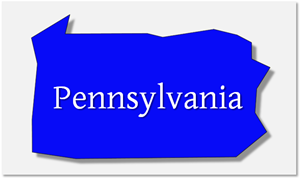 A federal judge in Pennsylvania struck down a state campaign finance law restricting the amount corporations and labor unions could donate to expenditure-only political committees. U.S. District Judge William W. Caldwell found Pennsylvania Election Code Section 3253(a) violates the First Amendment by limiting the amount a corporation or labor group can donate to political committees only making independent expenditures.
A federal judge in Pennsylvania struck down a state campaign finance law restricting the amount corporations and labor unions could donate to expenditure-only political committees. U.S. District Judge William W. Caldwell found Pennsylvania Election Code Section 3253(a) violates the First Amendment by limiting the amount a corporation or labor group can donate to political committees only making independent expenditures.
In his decision, Judge Caldwell cites to the Supreme Court decision Citizens United v. Federal Election Commission declaring limitations on independent expenditures made by corporations and labor unions restrict free speech.
The case, in the U.S. District Court for the Middle District of Pennsylvania, is General Majority PAC v. Aichele et al.
August 14, 2014 •
Thursday News Roundup
Lobbying “Universities chase big defense dollars” by Austin Wright in Politico. “Obama reversal shows difficulty of limiting lobbyists’ D.C. clout” by Mark Trumbull (Christian Science Monitor) in the Alaska Dispatch News. Campaign Finance “The Transparency Trap” by David Frum in […]
 Lobbying
Lobbying
“Universities chase big defense dollars” by Austin Wright in Politico.
“Obama reversal shows difficulty of limiting lobbyists’ D.C. clout” by Mark Trumbull (Christian Science Monitor) in the Alaska Dispatch News.
Campaign Finance
“The Transparency Trap” by David Frum in The Atlantic.
“GOP looks to shake loose more Wall Street cash” by Patrick Temple-West in Politico.
“Sen. Mike Lee doing ‘due diligence’ on illegal donation claims” by Lisa Riley Roche in the Deseret News.
Maine: “Maine campaign finance law challenged as unfair to independents” by Dave Sherwood in Reuters.
Texas: “Bitcoin Plays A ‘Bit’ Part In Campaign Fundraising, But Could That Change?” by Shelley Kofler in KERA News.
Ethics
North Carolina: “Conflict of interest statements for NC officials now online” by Tyler Dukes in WRAL.
North Carolina: “McCrory misstated Duke Energy holdings, sold stock after coal-ash spill” by J. Andrew Curliss and Craig Jarvis in The News & Observer.
Political Advertising
“GOP makes no apologies for ads disguised as news sites” by Jessica Taylor in The Hill.
Redistricting
Florida: “Scott signs congressional redistricting bill” by Lloyd Dunkelburger in the Herald-Tribune.
August 13, 2014 •
State Republican Parties Challenge SEC Pay-to-Play Rule
The Republican parties of New York and Tennessee have filed suit in U.S. District Court for the District of Columbia challenging Securities and Exchange Commission (SEC) Rule 206(4)-5. The plaintiffs allege the rule, which imposes restrictions upon investment advisors and […]
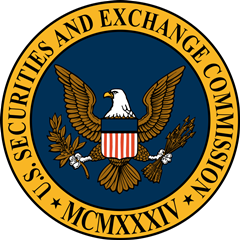 The Republican parties of New York and Tennessee have filed suit in U.S. District Court for the District of Columbia challenging Securities and Exchange Commission (SEC) Rule 206(4)-5. The plaintiffs allege the rule, which imposes restrictions upon investment advisors and their covered associates making contributions to officials of state and local government entities, violates the freedom of speech protections of the First Amendment.
The Republican parties of New York and Tennessee have filed suit in U.S. District Court for the District of Columbia challenging Securities and Exchange Commission (SEC) Rule 206(4)-5. The plaintiffs allege the rule, which imposes restrictions upon investment advisors and their covered associates making contributions to officials of state and local government entities, violates the freedom of speech protections of the First Amendment.
The suit also takes the position that the SEC does not have the authority to regulate campaign contributions.
If struck down, the elimination of the rule would make it easier for any state governor making a run for president to raise money from the financial sector.
August 13, 2014 •
Texas PAC Restriction Struck Down as Unconstitutional
On August 12, 2014, the U.S. Fifth Circuit Court of Appeals struck down a state law restricting expenditures by certain political committees. The law prevented a general-purpose committee from making political expenditures of more than $500 until a treasurer appointment […]
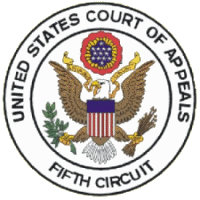 On August 12, 2014, the U.S. Fifth Circuit Court of Appeals struck down a state law restricting expenditures by certain political committees.
On August 12, 2014, the U.S. Fifth Circuit Court of Appeals struck down a state law restricting expenditures by certain political committees.
The law prevented a general-purpose committee from making political expenditures of more than $500 until a treasurer appointment had been on file with the Ethics Commission for at least 60 days and contributions had been accepted from at least 10 persons.
The same restriction did not apply to specific-purpose committees. The court held the restriction to be an unconstitutional burden on free speech.
August 13, 2014 •
Wednesday Government Relations News
Lobbying “White House eases lobbyist ban” by Megan R. Wilson in The Hill. “Obama Administration Loosens Ban on Lobbyists in Government” by Julie Hirschfeld Davis in The New York Times. “Lobbyists Are People, Too” by Jonanthan Bernstein in Bloomberg. “Report: […]
 Lobbying
Lobbying
“White House eases lobbyist ban” by Megan R. Wilson in The Hill.
“Obama Administration Loosens Ban on Lobbyists in Government” by Julie Hirschfeld Davis in The New York Times.
“Lobbyists Are People, Too” by Jonanthan Bernstein in Bloomberg.
“Report: The NCAA has spent $240,000 on lobbying in 2014” by Terrence Payne in NBC Sports.
Campaign Finance
“Hollywood pumps cash to save Senate majority for Democrats” by Judy Kurtz in The Hill.
California: “CalPERS board member facing another FPPC fine” by Dale Kasler in the Sacramento Bee.
Maine: “Judge weighing Maine campaign contribution limits” by The Associated Press in the SeattlePI.com.
Ethics
California: “New indictment in San Diego campaign finance case adds gun, bribery charges” on KGTV ABC News.
Government Tech and Social Media
“How the Open Source Election Technology Foundation is Remaking the Voter Experience” by Miranda Neubauer in TechPresident.
“White House U.S. Digital Service Aims to ‘Identify and Fix Problems’” by Jason Shueh in Government Technology.
Utah: “Utah Leading the Mobile-Friendly Government Movement” by Tod Newcombe in Governing.
August 12, 2014 •
Tuesday Lobbying and Campaign Finance News Update
Lobbying “White House vs. K Street” by Byron Tau in Politico. “Antonia Ferrier Settles Into New Role at Forbes-Tate | Downtown Moves” by Bridget Bowman in Roll Call. Wisconsin: “Taxpayers group is top-spending lobbyist again” by Bill Leuders in the […]
 Lobbying
Lobbying
“White House vs. K Street” by Byron Tau in Politico.
“Antonia Ferrier Settles Into New Role at Forbes-Tate | Downtown Moves” by Bridget Bowman in Roll Call.
Wisconsin: “Taxpayers group is top-spending lobbyist again” by Bill Leuders in the Post-Crescent.
Campaign Finance
California: “California campaign finance measure booted off ballot” by Christopher Cadelago and Jim Miller in the Sacramento Bee.
Florida: “Watchdogs want data on campaign spending” by James L. Rosica in The Tampa Tribune.
Ethics
Alaska: “APOC approves opinion saying lawmakers can use to state resources to stake referendum position” by The Associated Press in The Republic.
Georgia: “State Ethics Commission Hires 2 New Staff Lawyers” by Kathleen Baydala Joyner in the Daily Report.
New York: “Poll: Shrugs at Andrew Cuomo ethics woes” by Jonathan Topaz in Politico.
Redistricting
Florida: “Florida Legislature Approves New Congressional Map” by Bridget Bowman in Politico.
Florida: “Arguing Florida Failed Again, Dems Want Court-Drawn Map” by Mary Ellen Klas and Michael Van Sickler in Governing.
August 11, 2014 •
Monday News Roundup
Lobbying “Corporate Lobby ALEC Aims at U.S. City Councils With New Group” by Tim Jones in Bloomberg. “Netflix bulks up K St. help” by Megan R. Wilson in The Hill. Campaign Finance “Big Checks Strengthen Super PACs” by Kent Cooper […]
 Lobbying
Lobbying
“Corporate Lobby ALEC Aims at U.S. City Councils With New Group” by Tim Jones in Bloomberg.
“Netflix bulks up K St. help” by Megan R. Wilson in The Hill.
Campaign Finance
“Big Checks Strengthen Super PACs” by Kent Cooper in Roll Call.
“Waiting for the next Watergate” by Byron Tau in Politico.
“Wall Street Campaign-Cash Restrictions Face Legal Attack” by Robert Schmidt in Bloomberg.
Arizona: “Groups spend nearly $2 million in Arizona primary” by The Associated Press in the Arizona Daily Sun.
Montana: “Montana candidates late with campaign finance reports” by The Associated Press in the Great Falls Tribune.
Pennsylvania: “Pa. lawmakers face crowded calendar when they return” by The Associated Press in Herald-Mail Media.
West Virginia: “‘Dark money’ finds its way to W.Va.” by Ben Fields in The Herald-Dispatch.
Wyoming: “Candidates, committees disclose info as campaign finance deadline looms” by Laura Hancock in the Casper Star-Tribune.
Ethics
Florida: “Florida Lawmakers’ Personal Wealth Keeps Growing” by Marianela Toledo in the Sunshine State News.
Rhode Island: “Ethics complaint filed against R.I. Rep. Palumbo over beach concession contracts” by Randal Edgar in the Providence Journal.
West Virginia: “Lawmakers can’t use voters lists when sending letters, Ethics Commission rules” by Phil Kabler in the Charleston Gazette.
August 8, 2014 •
Electronic Filing for Campaign Reports Now Available in Vermont
Secretary of State Jim Condos announced candidates, parties, and political action committees are now able to file financial reports online. Use of the online system is currently voluntary but becomes mandatory on January 1, 2015. Electronic filing is available here.
 Secretary of State Jim Condos announced candidates, parties, and political action committees are now able to file financial reports online.
Secretary of State Jim Condos announced candidates, parties, and political action committees are now able to file financial reports online.
Use of the online system is currently voluntary but becomes mandatory on January 1, 2015.
Electronic filing is available here.
August 8, 2014 •
New Mexico Supreme Court to Hear Contribution Dispute
The state Supreme Court has issued a preliminary order and set a hearing on a campaign finance lawsuit filed by Democratic gubernatorial candidate Gary King. The preliminary order blocks Secretary of State Dianna Duran from forcing King to handover $10,900 […]
 The state Supreme Court has issued a preliminary order and set a hearing on a campaign finance lawsuit filed by Democratic gubernatorial candidate Gary King. The preliminary order blocks Secretary of State Dianna Duran from forcing King to handover $10,900 in contributions.
The state Supreme Court has issued a preliminary order and set a hearing on a campaign finance lawsuit filed by Democratic gubernatorial candidate Gary King. The preliminary order blocks Secretary of State Dianna Duran from forcing King to handover $10,900 in contributions.
At the center of the dispute is a state law limiting campaign contributions to $5,200 for a primary election and $5,200 for a general election. King’s post-primary report reflected contributions received after the date of the primary and in amounts more than the $5,200 general election limit, but at or under the $10,400 two-election limit.
Duran contends a candidate may not accept contributions attributable to the primary after the election has occurred when offered by donors who have given the maximum amount for the general election. The Office of the Secretary of State has previously advised candidates to provide clarification on the campaign report if a contribution should be applied to more than one election.
The hearing is scheduled for August 28, 2014.
August 8, 2014 •
News You Can Use Digest – August 8, 2014
Federal: Tea Party Group Loses Appeal on Corporate PAC Limits BusinessWeek – Andreew Zajac | Published: 8/5/2014 A three-judge panel of the U.S. Court of Appeals in Washington, D.C. kept in place limits on political donations by corporate PACs. The judges […]

Federal:
Tea Party Group Loses Appeal on Corporate PAC Limits
BusinessWeek – Andreew Zajac | Published: 8/5/2014
A three-judge panel of the U.S. Court of Appeals in Washington, D.C. kept in place limits on political donations by corporate PACs. The judges turned aside a challenge by Stop This Insanity Inc., an Arizona-based not-for-profit organization created to advance the values of the tea party movement. The group sought to allow corporate PACs to accept funds from the general public and to eliminate a $5,000-a-person annual limit on contributions earmarked for independent support or opposition to candidates.
From the States and Municipalities:
Alabama – Powerhouse GOP Group Snared in Money Scheme
Politico – Alexander Burns | Published: 8/4/2014
The Republican State Leadership Committee (RSLC) has spent tens of millions of dollars to flip state legislative chambers and redraw the congressional map in Republicans’ favor, and is poised to spend millions more this fall. A report by a Washington law firm detailed an investigation into alleged misconduct by multiple RSLC officials during the crucial 2010 election cycle. It charged that national leaders conspired improperly with the leader of the Alabama Republican Party to use the RSLC as a pass-through for controversial Indian tribe donations, essentially laundering money from the gaming industry by routing it out of state and then back into Alabama.
Florida – Deadline Set to Redraw Voting Map in Florida
New York Times – Frances Robles | Published: 8/1/2014
Circuit Court Judge Terry Lewis ordered Florida lawmakers to revise a map of 27 congressional districts by August 15, raising the possibility of delayed elections in November. The judge previously found the current map violated a state prohibition of gerrymandering. Lewis said until a new map is in place, it will be “difficult, if not impossible” to evaluate whether an election with new district lines is feasible before the new Congress takes office in January. The primary is set to take place August 26. A hearing, if needed, is set for August 20 to hear objections to the revised map or a proposed election schedule.
Maryland – Despite 2012 Law, Casino Interests and Md. Candidates Remain Intertwined
Washington Post – John Wagner | Published: 8/4/2014
Maryland’s ban on casino owners making campaign contributions is limited and has done little to stop the flow of funds associated with one prolific donor – William Rickman, Jr., owner of the Casino at Oceans Downs. Rickman has stopped giving as an individual and through the company he set up to operate the casino. But money has been donated to candidates through a separate Rickman company that owns the racetrack where the casino was built, and through a company established to provide food and beverage services there, among other avenues. Critics say the contributions tied to Rickman offer a prime example of how campaign finance reform often falls short of its goal: donors simply find other ways to give.
Massachusetts – Gov. Deval Patrick Signs Super PAC Disclosure Law
MassLive.com – Shira Schoenberg | Published: 8/4/2014
Massachusetts Gov. Deval Patrick signed a bill into law that increases individual campaign contribution limits for state candidates and requires additional disclosures for super PACs. Beginning immediately, the law requires that all groups making independent expenditures to disclose their donors within seven days, or within 24 hours if it is 10 days or less before an election. Beginning in January, the law raises the amount an individual can contribute to a state candidate from $500 to $1,000.
Massachusetts – State Fines Super PAC that Backed Walsh
CommonWealth Magazine – Paul McMorrow | Published: 8/6/2014
The two super PACs that supported Boston Mayor Martin Walsh in the closing days of the 2013 election are settling claims they violated Massachusetts campaign finance law. The groups behind $500,000 in pro-Walsh television ads, One New Jersey and One Boston, have agreed to pay $30,000 in fines. The money for the ads originated with the American Federation of Teachers, something that did not become known until after the election. The Massachusetts Office of Campaign and Political Finance found One New Jersey failed to identify itself as a political committee and One Boston failed to disclose the true origins of its donations.
Mississippi – Miss. Appeals Federal Judge’s Block of Small-Group Political Spending Laws; Hearing Sept. 3
Greenfield Reporter; Associated Press – | Published: 8/4/2014
The state of Mississippi is asking a federal appeals court to overturn a lower court ruling that part of its campaign finance law creates an unconstitutional burden for people or groups that spend at least $200 to support or oppose a ballot initiative. Opponents of the law argue the threshold is so low it would be impossible for a group of people to run a quarter-page ad in their local newspaper without having to become a political committee. State Attorney General Jim Hood said the disclosure requirements are “substantially related to the sufficiently important government interest” of educating voters about those who seek to influence their vote.
Tennessee – Conservatives See Potential in Tennessee Judicial Race
New York Times – Alan Blinder | Published: 8/5/2014
Most elections to retain state Supreme Court justices are bland affairs, but this year, Tennesseans have been inundated with mailings, venomous campaign ads, and more than $1 million of local and out-of-state money for the battle over three of the five seats on the court. The big push against the incumbents has come from Lt. Gov. Ron Ramsey. His PAC gave the largest recorded campaign contribution, more than $400,000, to a conservative group opposing the justices. Ramsey’s efforts have drawn national groups into the fight, like the Charles and David Koch-affiliated Americans for Prosperity, the State Government Leadership Foundation, and the Republican State Leadership Committee.
Utah – Utah Lobbyists Required to Wear Badges at Capitol
Charlotte Observer – Michelle Price (Associated Press) | Published: 8/1/2014
As of August 1, lobbyists in Utah must don name tags featuring the word “lobbyist” whenever they are trying to influence public officials at the Capitol. The law also requires lobbyists to disclose who they are working for before advocating to an official. Frank Pignanelli, who has been a lobbyist for the last 17 years after spending a decade as a lawmaker, said wearing badges is irritating and unnecessary. “I just think it’s silly and it’s not necessary and it smacks of a nanny state; our forefathers didn’t cross the plains so we can stick badges on lobbyists,” said Pignanelli.
Vermont – Searchable Campaign Finance System Goes Live
Burlington Free Press – Terri Hallenbeck | Published: 8/5/2014
Vermont now has a searchable computer system that will make it easier to track how much money candidates are raising and spending. Candidates, political parties, and PACs may start using it for campaign finance reports due later in August. Those who prefer the old paper system may continue using it this year, said Secretary of State Jim Condos. The new system becomes mandatory in January.
Wisconsin – Another Blow to Campaign Finance Disclosure in Wisconsin?
Captal Times – Jack Craver | Published: 8/1/2014
The Wisconsin Government Accountability Board (GAB) recently told a number of electioneering groups that they are welcome to disclose their spending activity and donors, but are not required to. That is a change from previous years, when organizations that expressly advocated for the election or defeat of a candidate have been required to periodically submit reports that listed their donors and spending activity. Groups that engaged solely in issue advocacy were not required to disclose. Now, however, the GAB is allowing even organizations that engage in a certain amount of express advocacy to forego disclosure.
Wyoming – Federal Court Rules in Favor of Third-Party Fundraising in Wyoming
Casper Star-Tribune – Trevor Graff | Published: 8/6/2014
A federal judge ruled a provision of Wyoming law that restricted third-party candidate fundraising is unconstitutional and cannot be enforced. Jennifer Young, who is running for secretary of state as a Constitution Party candidate, and one of her supporters sued the state. They challenged a campaign finance law that limited fundraising for candidates whose parties do not participate in primary elections. The contested provision barred third-party candidates from accepting political contributions before the primary election. Major party candidates faced no such restriction.
 State and Federal Communications produces a weekly summary of national news, offering more than 80 articles per week focused on ethics, lobbying, and campaign finance.
State and Federal Communications produces a weekly summary of national news, offering more than 80 articles per week focused on ethics, lobbying, and campaign finance.
News You Can Use is a news service provided at no charge only to clients of our online Executive Source Guides, or ALERTS™ consulting clients.
August 7, 2014 •
Thursday News Roundup
Lobbying California: “Harvey Whittemore surrenders to federal prison camp” by Martha Bellisle in the Reno Gazette-Journal. Wisconsin: “Lueders: Lobbyists spent $14.1 million in six months” by Bill Leuders in the Wausau Daily Herald. Campaign Finance “Strategists say impact of outside […]
 Lobbying
Lobbying
California: “Harvey Whittemore surrenders to federal prison camp” by Martha Bellisle in the Reno Gazette-Journal.
Wisconsin: “Lueders: Lobbyists spent $14.1 million in six months” by Bill Leuders in the Wausau Daily Herald.
Campaign Finance
“Strategists say impact of outside group spending is overrated” by Alexander Bolton in The Hill.
California: “Attorneys say Legislature acted within its authority to put Citizens United question on ballot” by The Associated Press in The Republic.
New Hampshire: “New Hampshire candidate cashes in on campaign finance reform” by Scott Malone in Reuters.
West Virginia: “W.Va. speaker canceled; pleaded guilty to charges” by The Associated Press in The Intelligencer.
Ethics
“The Value of Political Corruption” op-ed by Thomas B. Edsall in The New York Times.
“Can You Accept That Gift? Take Our Quiz” by Eric Katz in Government Executive.
Dallas, Texas: “Mayor Mike Rawlings wants city’s ethics commission to deal with legitimate complaints, not ‘frivolous’ ones” by Robert Wilonsky in The Dallas Morning News.
Redistricting
“4 End-Game Scenarios for the Florida Map Chaos” by Bridget Bowman in Roll Call.
U.S. District Judge Alan B. Johnson has approved a settlement agreement ending a lawsuit challenging the fundraising restriction faced by third-party candidates. Jennifer Young, the Constitution Party’s candidate for secretary of state, and her supporter Donald Wills challenged a state […]
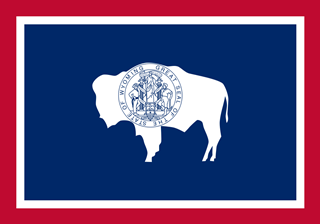 U.S. District Judge Alan B. Johnson has approved a settlement agreement ending a lawsuit challenging the fundraising restriction faced by third-party candidates.
U.S. District Judge Alan B. Johnson has approved a settlement agreement ending a lawsuit challenging the fundraising restriction faced by third-party candidates.
Jennifer Young, the Constitution Party’s candidate for secretary of state, and her supporter Donald Wills challenged a state campaign finance law prohibiting candidates from accepting contributions for the general election before the primary election. Since third-party candidates do not participate in the primary elections, they were prohibited from fundraising until August of an election year.
The court order finds the fundraising restriction unconstitutional and unenforceable against minor party candidates, independent candidates, and potential contributors.
State and Federal Communications, Inc. provides research and consulting services for government relations professionals on lobbying laws, procurement lobbying laws, political contribution laws in the United States and Canada. Learn more by visiting stateandfed.com.

